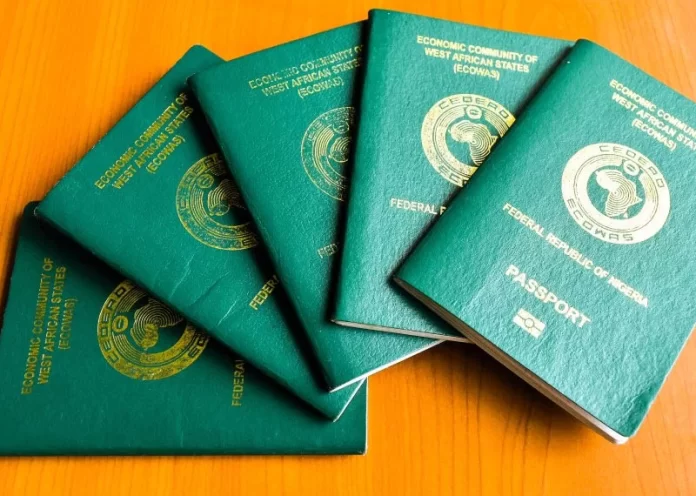The Nigerian passport has been ranked among the 18 least powerful passports globally in 2025, according to the latest report by the Henley Passport Index.
The index, which ranks passports based on the number of destinations their holders can access visa-free, placed Nigeria at 183 out of 200 countries.
This low ranking reflects a persistent trend over the years, as African nations continue to struggle with limited global mobility. Despite this, countries like Singapore and Japan have maintained dominance in the rankings.
Global Passport Power Rankings
Singapore reclaimed its position as the world’s most powerful passport, offering visa-free access to 195 of 227 destinations. Japan follows in second place with access to 193 destinations, benefiting from restored visa-free entry to China post-COVID lockdowns.
European countries, including France, Germany, Italy, and Spain, dropped to third place with visa-free access to 192 destinations. They were joined by Finland and South Korea, both of which lost a rank over the past year.
The United Arab Emirates (UAE) secured a spot in the top 10, ranking 10th with visa-free access to 185 destinations. This marks a significant climb for the UAE, which has added access to 72 destinations since 2015.
The Least Powerful Passports
At the bottom of the index, Afghanistan remains the least powerful passport, providing visa-free access to just 27 destinations. This creates the largest mobility gap in the index’s 19-year history, as Singaporeans can travel to 169 more destinations without a visa than Afghan passport holders.
Insights and Trends
Christian Kaelin, Chairman of Henley & Partners and the creator of the passport index, emphasized the growing inequality in global mobility. He highlighted the urgent need for initiatives like “Free Global Cities” to leverage the potential of displaced individuals and migrants.
Kaelin noted, “The concept of citizenship needs rethinking as climate change, political instability, and armed conflicts continue to displace communities worldwide.”
Regional Mobility Shifts
The report also highlighted the comparative decline of the United States, which fell to 9th place in 2025 from 2nd in 2015. This decline has been attributed to inward-looking policies and isolationist trends in recent years. In contrast, China climbed from 94th place in 2015 to 60th in 2025, granting visa-free access to 29 more countries over the past year alone.
According to Annie Pforzheimer of the Center for Strategic and International Studies, the U.S.‘s reduced openness contrasts sharply with China’s growing soft power, likely signaling Asia’s rising influence in global mobility and diplomacy.
Implications for Nigeria
As Nigeria remains near the bottom of the rankings, the country faces significant challenges in improving its global mobility. The findings underline the need for stronger diplomatic efforts and policy changes to enhance access for Nigerian travelers worldwide.



